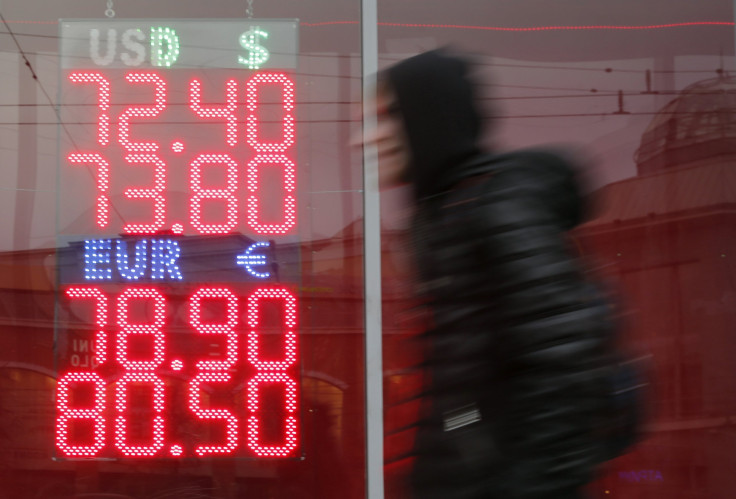Video: A Gloomy New Year For Russian Economy
[REUTERS]
Western sanctions and the impact of low oil prices have taken a toll on Russia. And a falling rouble: it ended 2015 around new lows for the year.But many Muscovites remain sanguine about the situation.
A Moscow resident named Yury said, "This is how it should be, the exchange rate is the same as the situation in the country. There is nothing strange in it. We will survive." The government says it's scaling back on spending from healthcare to welfare.
But Simon French, chief economist at Panmure Gordon is one economist on the lookout for even worse from the Russian economy. "A lot of Russian corporates will be hurting and if you start to see some defaults," he said, "you start to see the loans that have gone into Russia, principally in dollar-denominated debt but also in euro-denominated debt starting to harm the banking sector in those countries and contracting lending. That is when it can spread significantly."

The latest Markit's Purchasing Managers' Index shows service activity falling further below the key 50 mark that denotes growth. Jobs in the sector continued to fall for the ninth consecutive month. Manufacturing in December also showed a deterioration.
Still, a weak rouble could have some advantages.French said,"It does slightly absorb some of the impact of low oil prices in dollar terms because it translates into high rouble revenues and therefore there is some relief for the Russian economy."
Russia's economy was expected to contract by around 4 percent over 2015. Prospects for a recovery in 2016 knocked back by further falls in the price of oil.
© Copyright IBTimes 2025. All rights reserved.





















